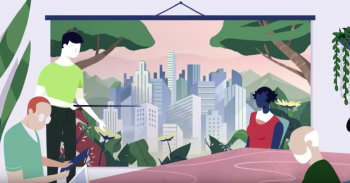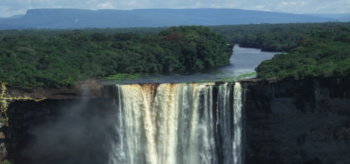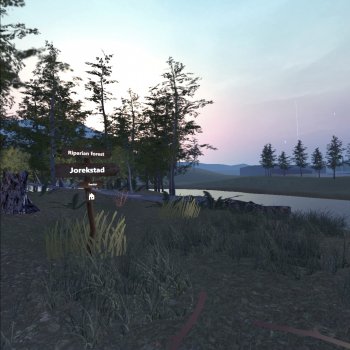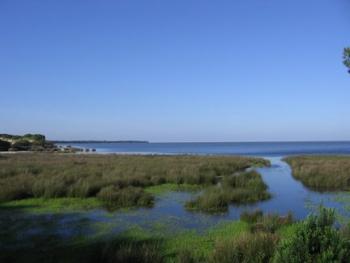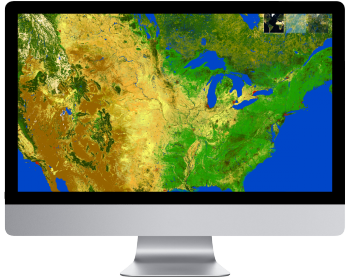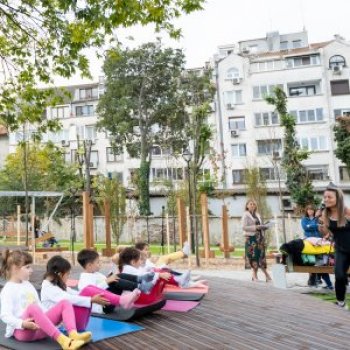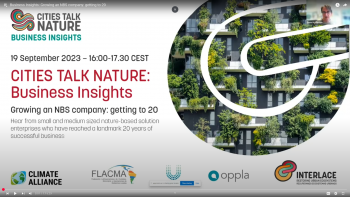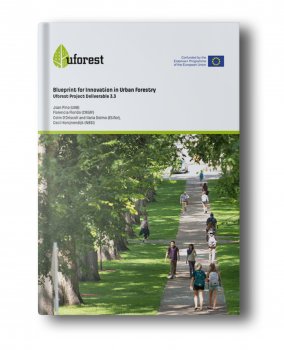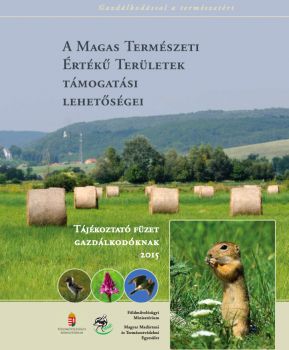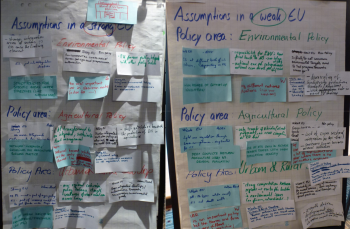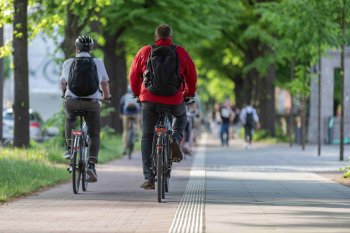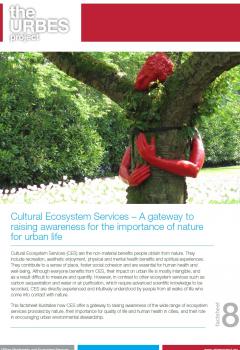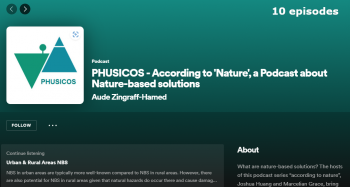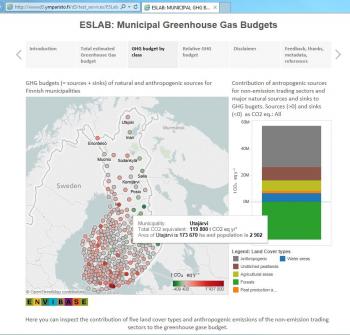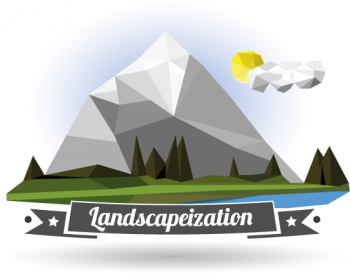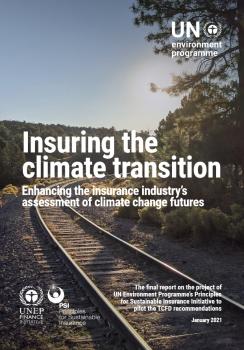Marketplace
Nature-based solutions State of the art in EU-funded projects
This document summarises outcomes from the EC individual expert reports delivered through its ‘Valorisation of NbS Projects’ initiative. EU research and innovation projects were scanned for results pertaining to key areas such as biodiversity, climate change mitigation and adaptation (including
The URBES project - European URban Biodiversity and Ecosystem Services
This animated movie entitled “What’s the role of nature? Scientists at the URBES project inspire sustainable urban planning for people and nature” shows the results of the ‘Urban Biodiversity and Ecosystem Services’ (URBES) research project funded by BiodivERsA. It presents the key research
Protecting the Amazon can protect the Climate
Amazon Protected Areas are key in helping communities and nature adapt to a changing climate. They build resilience to climate change globally, mitigate the impacts of climate events, ensure the provision of ecosystem services and protect biodiversity. Protected Areas should be included in climate
PhusicosVR - NbS demonstrators in Virtual Reality
The H2020 project PHUSICOS focused on demonstration sites for NbS implementations to reduce hydrometrological risks in rural environments. These implementations are difficult enough to envision for professionals familiar with them, such as landscape architects and infrastructure engineers, but for
- Document
OPERAS D4.7 Implementation Guidance
D4.7 developed guidance for the design and implementation of schemes that can use the NC/ES concepts: Payment for Ecosystem Services (PES); Offsetting; Standards, Certificates, Reporting, Labelling and Procurement; Spatial Planning, Regulation and Development Control; and Nature Based Solutions.
Deliberative mapping of ecosystem services within and around Donana National Park (SW Spain) in relation to land use change
The establishment of protected areas is one of the main strategies for preserving biodiversity from land use transformation. However, a great number of protected areas are becoming isolated due to land use changes in their surroundings.
OneMap from Ecometrica
A diverse business with global operations and land-based assets faces a number of reporting challenges. Management teams need fast access to data that is locked away in departmental silos, inaccessible and unusable. Even with close links to these departments, gathering all the information needed to
What socio-demographic characteristics of university students in Southern Germany predict their urban nature connectedness?
Promoting mental health addresses a global societal challenge. Nature connectedness, or relatedness to natural systems, is associated with increased well-being and mental health. This cross- sectional online study addressed this issue by identifying socio-demographic predictors of urban nature
Business insight programme – webinars
As part of the CITIES TALK NATURE events, the INTERLACE project held a series of webinars to discuss business insights and opportunities for nature-based solutions (NbS) in Europe and Latin America. The webinars covered topics including: policy instruments for private NbS businesses, standards and
Evaluating Ecological Restoration Success: A Review of the Literature
Assessing the success of ecological restoration projects is critical to justify the use of restoration in natural resource management and to improve best practice. Although there are extensive discussions surrounding the characteristics that define and measure successful restoration, monitoring or
Blueprint for Innovation in Urban Forestry
Blueprint for Innovation in Urban Forestry: a review of urban forestry’s potential for a healthier and more sustainable future Urbanisation is a global trend: according to the United Nations Department of Economic and Social Affairs (UN DESA), today 55.5% of the world’s population lives in urban
MEZŐGAZDASÁG: Tudástár a természetkímélő gazdálkodás témakörében
A közzétett tudásanyagokat a Natura 2000 hálózat égisze alatt publikálta a Magyar Madártani és Természetvédő Egyesület (MME) a természetkímélő gazdálkodás témakörében. Az MME célja a madarak védelmével hozzájárulni az emberi életminőség és a biológiai sokféleség megőrzéséhez Magyarországon.
Participatory scenario development and planning
Participatory scenarios development and planning In the recently published IPBES assessment on scenarios and models, the uses of scenarios for biodiversity and ecosystem services where summarized. They serve for awareness raising and agenda setting, and assist in policy and more broadly
Science at ISGlobal
The 1000 cities ranking is a project of the Barcelona Institute for Global Health (ISGlobal), one of the centres in the PRBB. It’s aim is to estimate the impact of air quality, noise, temperature and proximity to green spaces on the health of people living in Europe's largest cities. Learn
Cultural Ecosystem Services - URBES Factsheet #8
This factsheet illustrates how cultural ecosystem services offer a gateway to raising awareness of the wide range of ecosystem services provided by nature, their importance for quality of life and human health in cities, and their role in encouraging urban environmental stewardship.
PHUSICOS -According to 'Nature', a Podcast about Nature-based solutions
What are nature-based solutions? The hosts of this podcast series “according to nature”, Joshua Huang and Marcelian Grace, bring the listeners on an exciting journey through key topics in nature-based solutions as well as case studies located in Europe. The interviewed experts pass on valuable
ESLab services test and demonstration site
The test and demonstration version of ESLab services provide 1) visualization of municipal greenhouse gas budgets in Finland, and 2) High resolution carbon budget data for a pilot study region in southern Finland.
UN World Water Development Report 2022
Accounting for approximately 99% of all liquid freshwater on Earth, groundwater has the potential to provide societies with tremendous social, economic, and environmental benefits and opportunities. Groundwater already provides half of the volume of water withdrawn for domestic use by the global
LANDSCAPEization
The LANDSCAPEization toolkit allows the visualization of and reporting on ecosystem services (ES)- and non-ES-related information in real-time over spatial scales. Embedded in a decision support system, the provided information supports the communication of land use changes and their impacts on ES
UNEP’s Principles for Sustainable Insurance Initiative (2021): Insuring the climate transition: The final report of UN PSI’s TCFD pilot project
The insurance industry is one of the largest global industries with more than USD 6 trillion in world premium volume and USD 36 trillion in assets under management. As such, insurers hold a significant portion of global economic assets and liabilities on their balance sheets. As risk managers,
- ‹ previous
- 43 of 45
- next ›

